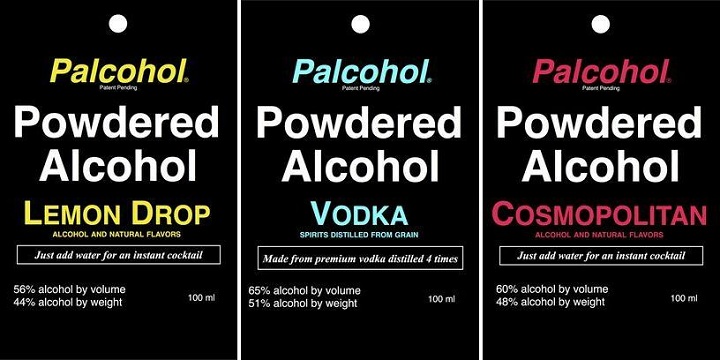DENVER – Powdered alcohol hasn’t even arrived in stores yet, but states already are moving to ban the product touted by its inventor as an easy way to mix a drink on the go.

Colorado is the latest state considering prohibiting “Palcohol” amid concern it will increase underage drinking. The product is marketed as an ounce of rum or vodka in powdered form, which is then added to water.
Each serving is the equivalent of a shot of liquor, according to Lipsmark, the company that owns Palcohol.
“I think being proactive and jumping out in front of the problem is probably the right thing to do,” said Chris Johnson, executive director of the County Sheriffs of Colorado. “It really doesn’t have any place in our society, powered alcohol. We have enough problems with the liquid kind.”
Johnson said he fears powdered alcohol will make it easier for children to “sprinkle it on top of their Wheaties for breakfast” and increase the potential for alcohol poisoning.
“It can be a very dangerous thing,” he said.

Get weekly health news
The company’s website notes various instances where they argue the product would be convenient, including on flights and as an antiseptic on remote locations. Palcohol’s creator, Mark Phillips, said he thought of the idea because it would be easier to carry powder for a drink during a long hike or other outdoor activities.
Alaska, Delaware, Louisiana, South Carolina and Vermont already have banned powdered alcohol, according to the National Conference of State Legislatures. Minnesota, Ohio, and New York also are considering bans, the organization said.
In a video posted on the company’s website, Phillips dismisses the concerns about underage drinking, noting the product would be sold only at liquor stores to people 21 and older. In the video, he also argues it would be impractical for people to snort the powder, as some critics fear, because it would be painful to do and the amount of powder in a package fills about half a glass tumbler.
The company doesn’t expect Palcohol will be available in stores until spring 2015 at the earliest. They’re still waiting for labeling approval from the Alcohol and Tobacco Tax and Trade Bureau. The Food and Drug Administration said it does not have a legal basis to block the product after examining the non-alcoholic ingredients in the powder.
Lynne Barbour, director of communications for Palcohol, said states should control the product instead of banning it.
“We believe it should be regulated and taxed,” she said in an email.
In addition to making Palcohol available as powdered rum and vodka, the company plans four cocktail varieties — Cosmopolitan, Mojito, Lemon Drop, and Powderita.
Republican Rep. JoAnn Windholz is sponsoring a bill to ban powdered alcohol in Colorado during the legislative session that begins next month. She said it’s prudent for states to ban the product until they know how it can affect people if it happens to be stronger than liquid alcohol — another concern Phillips contends is unfounded.
Windholz said states should make sure they have a regulatory system in place before allowing powdered alcohol to be sold.
“It can be taken into schools, it can be taken into sports (events), Broncos games, whatever,” she said.
___
Find Ivan Moreno on Twitter: http://twitter.com/IvanJourno







Comments